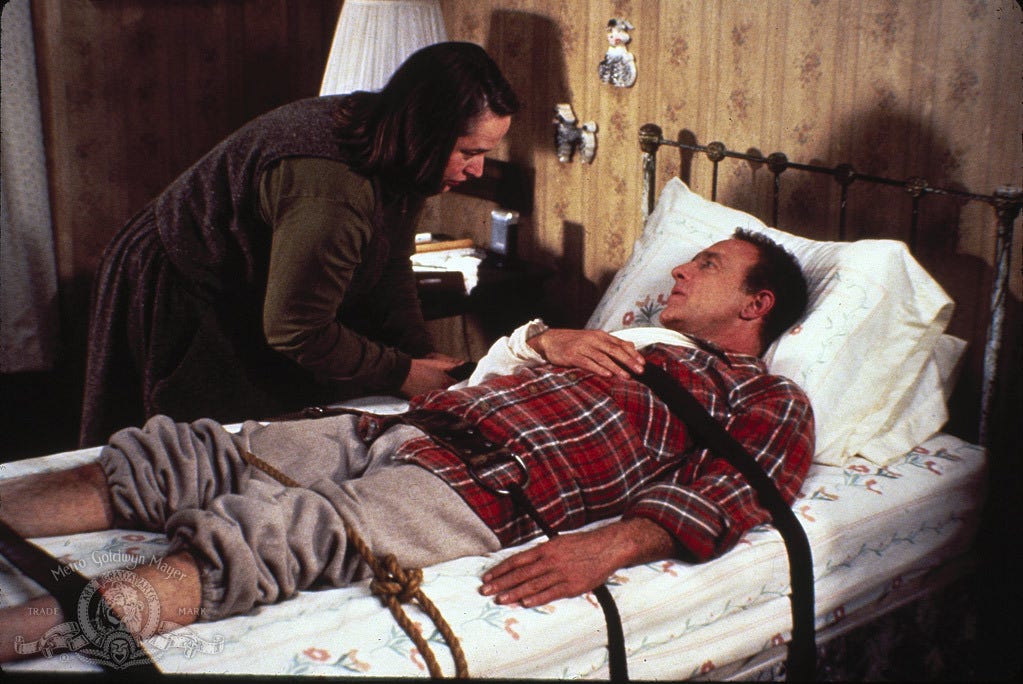Stephen King once said that you can never teach people to be great writers, but you can encourage people to become better writers. I am not setting myself up as an authority. I have exhibited every fault I highlight. I am just offering you the chance to learn from my mistakes.
In the days before the Web, writing provoked two fears. The first was the fear of the power of the writer, which accounts for political and religious censorship throughout the ages. Good writers bewitch their readers. Mistrust of their almost supernatural ability to transform an audience explains why Plato wanted to banish poets from his ideal Republic, an authoritarian stance anyone who has attended a slam poetry evening can only sympathise with.
By contrast artists fear their audience will typecast them. In Misery, Stephen King (see above) has the author of trashy historical romances yearning to become a true artist who produces works of literary fiction. He falls into the clutches of a superfan (and serial killer) who forces him to keep writing the same old rubbish.
Audience capture Stephen King style. Still from the 1990 film adaptation.
Misery was a better guide to the future than Plato’s Republic. The Web has created a toxic relationship between writers and readers worthy of a horror story. But with one important change. No one holds you prisoner on social media. No one tortures you. Instead the power of fandom drives you crazy.
Social media plays on our yearning for approval. The effects on mental health are now indisputable
“Social media platforms drive surges of dopamine to the brain to keep consumers coming back over and over again. The shares, likes and comments on these platforms trigger the brain’s reward centre, resulting in a high similar to the one people feel when gambling or using drugs.”
If you don’t get the dopamine hit, you experience withdrawal symptoms and live in misery. If you experience mass hate, you feel the world is trying to destroy you.
The web has also made generalisations about “writers” or “the media” redundant. Everyone who posts online is a writer. The influencers among them are a far larger group than the small number of professional writers the pre-Net world of the 20th century could sustain. The American podcast host Eric Weinstein coined the term “audience capture” to describe the greatest risk large and small influencers face. Weinstein defined it as “a self-reinforcing feedback loop that involves telling one's audience what they want to hear and getting rewarded for it”.
You may ask: haven’t people always done that? Isn’t Weinstein merely describing an entrepreneur’s need to keep the customers satisfied?
I do not believe you can compare the present with the past. To take the most obvious difference, Dr Johnson said
Keep reading with a 7-day free trial
Subscribe to Writing from London to keep reading this post and get 7 days of free access to the full post archives.



